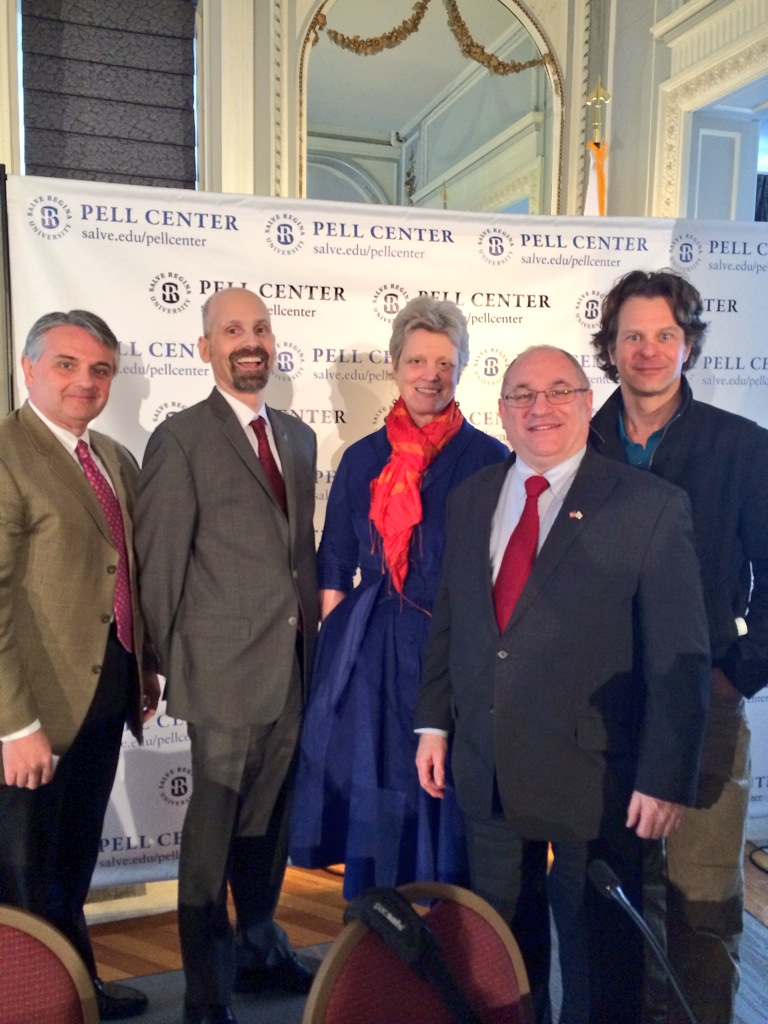Better Places, Better Economy
Galleries, theaters, festivals and concerts make places better – and make their economies better as a result.
This was one of the key take-aways from a discussion at the Pell Center, Salve Regina University in Newport, on Tuesday of this week. Five panelists painted a picture for the audience of how the arts draw people together, creating more vibrant and therefore more prosperous communities – and also discussed what goes into creating the kind of active arts scene that attracts people to live or work in a community, visit there, spend there.

Governor Chafee has said he’d like Rhode Island to be the “State of the Arts,” and has argued strongly for the economic importance of arts investments. Panelists wholeheartedly endorsed this perspective, and filled in the picture of the choices involved in promoting an active arts environment – including everything from public investments in arts centers to making it easier for individual artists to find affordable workspace and navigate the legal requirements for small businesses.
We all know that places are more attractive and more likely to thrive if there are concerts and plays to go to, festivals to attend and galleries to shop in. As one of the panelists noted, these things make a place more vibrant and enjoyable even if we aren’t personally attending. So the bottom line is that the arts isn’t just a sector or industry among many – it is one that helps all the others, since it attracts
visitors, residents, workers and dollars.
And we don’t have to just wait for a lively scene to develop. The choices we make as a town, a state, a community, can help it happen, or not. We may debate the specifics (some have critiqued the details of Governor Chafee’s proposals for instance) but we can’t argue about whether the words “arts” and “policy” go together. They do.
